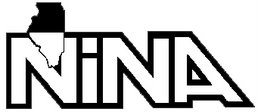“Ya get good notes?” -- Jason Robards as Ben Bradlee
“Verbatim.” -- Robert Redford as Bob Woodward, speaking for Dustin Hoffman as Carl Bernstein
In the fog of blogs, convergence and economic survival, I apologize for highlighting yet another worry, but a basic, critical reporting skill is dying. Tomorrow’s journalists don’t take good notes (if teaching journalism at NIU is any indication).
I have wanted to say something for a while, but what sent me over the edge was my basic news writing students brainstorming Valentine’s Day feature angles. I drew a giant heart on the board with lines to things like “chocolate,” “sex,” “love,” “romance,” “lingerie,” and “getting dumped/being dumped.” The students enjoyed creating these angles, knew this was an assignment, heard my rant about reporters’ notes, and knew I don’t put class notes or PowerPoints online. Of two sections of class (about 33 students), only a handful took any notes.
So I mentioned “writing an article about students’ lack of note-taking ability for the Northern Illinois Newspaper Association, an organization that might provide you your first career job,” and that I would be peeking at their notes over the next few days. No improvement. I showed the “All the President’s Men” scene of Hoffman/Bernstein scribbling each word, challenging my students to get the same notes. Ouch.
I wish this semester is an anomaly, but over several years of teaching college journalism, it’s clear that many of our up-and-comers don’t:
- take good notes
- know how to take good notes even if they wanted to
- have training in note taking
- want to learn more about taking notes
- care (beyond lip service) about taking notes
I perused a stack of basic journalism textbooks to make sure notes are still important. Everyone thinks so. Most books dispense advice about how note taking is a multifaceted process of listening, writing, interpreting, and following up; how it’s nearly impossible to get every word, so learn when to quote and when to paraphrase; to use a pencil in bad weather; how tape recorders fail, and so forth. A few acknowledge that note taking is critical – but so fundamental that many j schools don’t teach it – and many FRONT COVERS depict a reporter taking notes! What gives?
The decline of the once exalted note seems partly societal, partly technical. Nowadays, note taking is a menial chore for menial people. A former boss assigned meeting “scribes,” so that only person would have to take notes, thereby enabling everybody else to (God forgive me for writing this) “think outside the box.” Haven’t you been surprised in recent meetings at how few people take notes?
With our students, the problem is much more technologically located. They are certain there will be an accurate, easily downloadable version of events ... that they can retrieve in nanoseconds … on deadline … for free. They think this because 1) it’s often true, and 2) we have addicted them to the Internet and PowerPoint.
Regardless of the source of the problem, taking notes is like playing pool or making guacamole (to use two extremes): one gets better with practice.
What Might Help:
- Employers: institute a “policy” that novice reporters’ notes are subject to spot checking. Call it qualify control.
- If you have meetings and see reporters not taking notes, embarrass them.
Emphasize note taking in mentoring. Pair strong note-taking veterans with weak note-taking beginners. Beats don’t matter; in fact, pairing a sports writer with a cops reporter might be good. - Create easy, low/no-budget note-taking contests. Play a short scene of anything with lots of quick dialogue. Whoever gets closest to verbatim wins a better parking spot, a gift card … whatever.
- Find a retired secretary to teach shorthand.
- Journalism faculty: put as little material online as possible. Force students to take notes (be sure to explain your policy).


1 comment:
It's good to see someone taking into account the importance of note-taking in the professional world. If people realized the overall importance that notes played beyond University studies, and utilized the same strategies in their professional careers, they'd notice further advancement and more productiveness.
Great blog!
Jake
NoteScribe: Premier Note Taking Software
Post a Comment